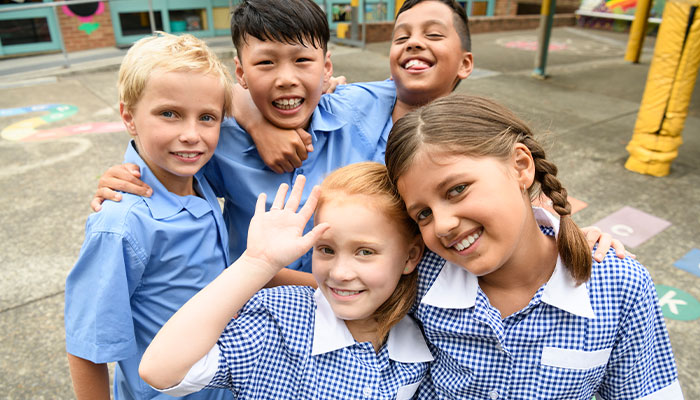The Pandemic’s Impact on Primary School Students: A Glimpse into Their Lives Two Years After Lockdowns

In the wake of Victoria’s two-year lockdown anniversary, The Age delves into the experiences of primary school students, a group that has faced unique challenges due to the pandemic.
Despite the disruptions caused by lockdowns and remote learning, many primary school students have shown remarkable resilience and adaptability. Kaien Vu, a year five student at Sacred Heart School in Fitzroy, exemplifies this spirit. Despite spending much of his early school years in lockdown, Kaien remains ambitious and enthusiastic about his future, aspiring to become a neurosurgeon or a lawyer.
While academic progress has been maintained, there are concerns about the social and emotional impact of lockdowns on younger students. Principal Jacquie Marshall of St Martin of Tours Primary School in Rosanna notes that the pandemic has widened the gap in social and emotional maturity among students, particularly those in year three.

Lockdowns have also affected students’ physical activity levels and screen time habits. A Victorian government report found that lockdowns and remote learning disrupted children’s exercise and dietary behaviors. Additionally, screen time has increased significantly, with children spending more time engaged in sedentary activities.
Despite these challenges, there is evidence that prosocial behaviors among children have increased during the pandemic. The Australian Institute of Family Studies found that children who engage in prosocial behaviors are less likely to experience mental ill health.
Parents of primary school students face their own set of concerns. Joi Zakanj, a Melbourne mother, worries that her daughter Mila’s unusual start to school due to the pandemic has held her back academically and socially. However, Mila remains a happy and resilient child, enjoying school activities and social interactions.
The experiences of primary school students during the pandemic highlight the importance of early intervention and support for those who may have fallen behind academically or socially. Additionally, promoting prosocial behaviors and encouraging physical activity can help mitigate the negative effects of increased screen time and sedentary lifestyles.
As we move forward from the pandemic, it is crucial to continue monitoring the well-being of primary school students and provide them with the support they need to thrive.
